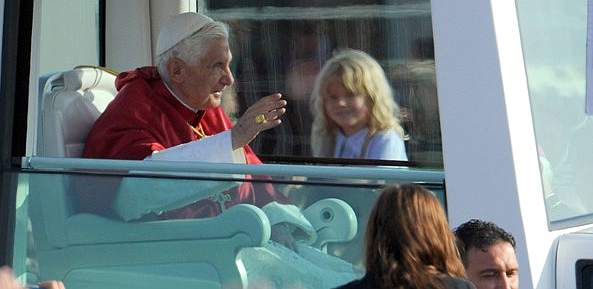Aktiv deltakelse i messen, holde hender etc.

En biskop i USA har utgitt liturgiske regler for sitt bispedømme (se her – pdf-fil), og bl.a. skrevet at man ikke skal holde hverandre i hendene under Fader vår. Noen syns (se her) at dette var forferdelig dumt sagt, og Father Z. kommenterer det hele på denne måten:
Correctly understood, the “full, conscious and active participation” desired by the Council Fathers is rooted in our baptismal character, which makes it possible to receive graces and the other six sacraments. “Active participation” is first and foremost an interiorly active receptivity to all that God is offering. This interiorly active receptivity requires the person to make acts of will to stay focused and attentive to the mysteries of the sacred action. This interior receptivity at times manifests itself outwardly in physical expression, especially in the words people speak as responses, prescribed prayers recited in common during the liturgical action, certain gestures such as kneeling or standing of making the sign of the Cross, and at times walking in procession, as in the case of going forward to receive Holy Communion. In fact, reception of Holy Communion by a baptized person in the state of grace is the most perfect form of “full, conscious and active participation”, for its is the perfect harmony of the interior and the exterior of the person’s active receptivity.
On the other hand, some people – liberal liturgists for example – think that active participation means doing things, such as carrying stuff, clapping, singing every word of everything that could be sung, moving about, etc. They are abetted by clerics who think they are “empowering the laity” and helping their “active participation” by surrendering their own proper roles as clerics to any number of lay people. Liberal liturgists talk of baptism as the foundation of “active participation”. They see baptism as conferring rights, especially the right to do things during the liturgical action. …
… A good example of this liturgy rights activism popped up on the site of the extremely liberal US cATHOLIC, penned by their perennially wrong Bryan Cones. They are staging a nutty over there about the liturgical law issued by His Excellency Most Rev. Roger Foys for the Diocese Covington. Among the issues addressed by the bishop is the liturgically bizarre and often liturgically abusive aberration of prompting people to hold hands and wave their arms around during the Our Father of Holy Mass.


